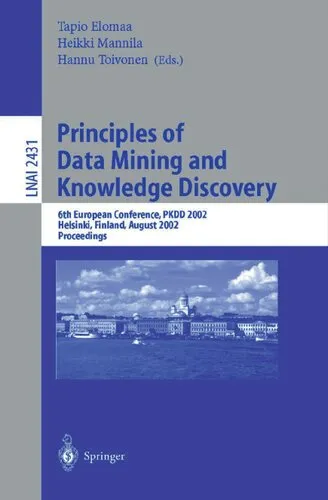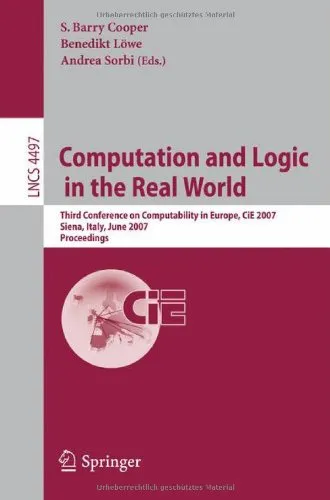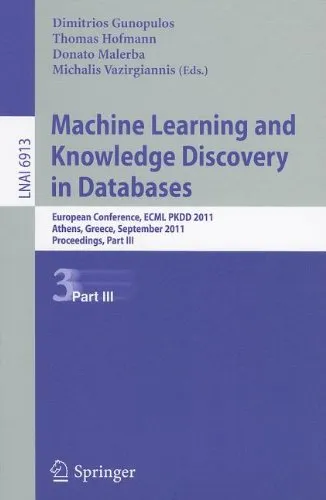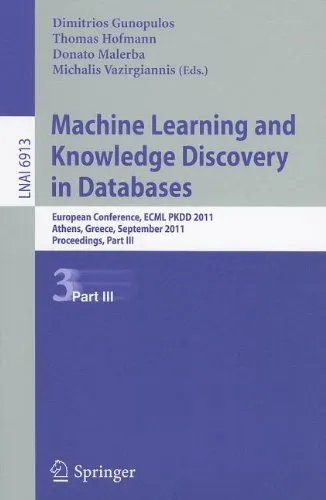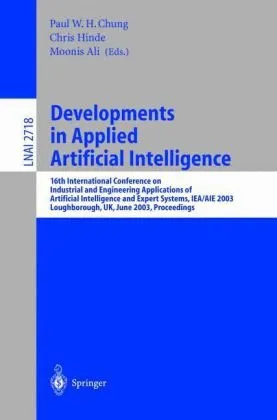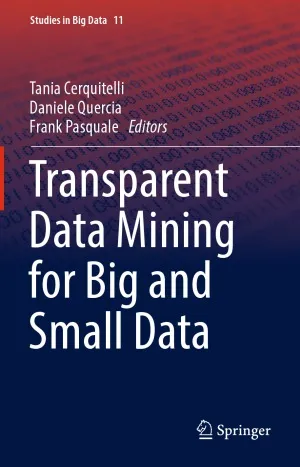Principles of Data Mining and Knowledge Discovery: 5th European Conference, PKDD 2001, Freiburg, Germany, September 3-5, 2001 Proceedings (Lecture Notes in Computer Science, 2168)
3.9
Reviews from our users

You Can Ask your questions from this book's AI after Login
Each download or ask from book AI costs 2 points. To earn more free points, please visit the Points Guide Page and complete some valuable actions.Related Refrences:
Introduction
The book "Principles of Data Mining and Knowledge Discovery: 5th European Conference, PKDD 2001, Freiburg, Germany, September 3-5, 2001 Proceedings (Lecture Notes in Computer Science, 2168)" is an essential resource for researchers, practitioners, and academics exploring the forefront of data mining and knowledge discovery. Edited by Luc de Raedt and Arno Siebes, this volume encapsulates the pioneering developments and advancements presented at PKDD 2001, making it an authoritative compendium for anyone seeking to grasp the state of the art in this dynamic field.
Held annually, the European Conference on Principles and Practice of Knowledge Discovery in Databases (PKDD) is renowned for attracting top-tier professionals and scholars focusing on data science methodologies, learning algorithms, pattern discovery, and big data challenges. This particular conference held in Freiburg, Germany, brought together diverse stakeholders who contributed profoundly to shaping the direction of data mining research and practice.
Detailed Summary
The book spans a comprehensive selection of papers delivered during the conference, meticulously curated to reflect both theoretical perspectives and practical applications. Topics range from foundational principles of machine learning to advanced techniques in pattern discovery, semi-supervised algorithms, and data preprocessing. Emphasizing real-world relevance, several chapters showcase applications across domains such as bioinformatics, e-commerce, and social networks, demonstrating the ubiquitous nature of knowledge discovery.
Each paper has been rigorously peer-reviewed to uphold academic excellence, offering insights into innovative methods like clustering algorithms, association rule mining, and temporal data analysis. The interdisciplinary approach of PKDD 2001 is a significant highlight; contributions integrate concepts from statistics, artificial intelligence, and database systems, underscoring the evolving synergy between theory and practice.
Furthermore, this proceedings volume highlights emerging trends at the time, including the challenges of handling high-dimensional data and ensuring the scalability of algorithms in industrial contexts. Contributors also delve into ethical considerations and the interplay between privacy and data-centric approaches, making it a cornerstone reference for addressing modern concerns in data-intensive disciplines.
Key Takeaways
- A deep dive into the theoretical underpinnings of data mining techniques, such as classification, clustering, and association rule mining.
- Exploration of practical applications covering domains such as healthcare, e-commerce, and social sciences.
- Insights into novel algorithmic approaches and machine learning innovations introduced in 2001.
- Emphasis on building scalable, efficient, and ethical data mining solutions in the context of increasingly large datasets.
Famous Quotes from the Book
"The true challenge of data mining lies not in finding patterns within data, but in identifying patterns that hold meaningful and actionable significance in the real world."
"Knowledge discovery is more than algorithms; it is about the marriage of human insight and computational power."
"Data is the new oil, but like oil, it requires refinement and systematic evaluation to become valuable."
Why This Book Matters
This book holds an important place in the history of data mining and knowledge discovery due to its comprehensive coverage of groundbreaking techniques and methodologies. Not only does it serve as a snapshot of the state of data mining in 2001, but its principles continue to inform contemporary practices in the field. The interdisciplinary nature of the research presented bridges the gap between academic insights and practical implementations, fostering better collaboration between scholars and industry practitioners.
Moreover, the book’s focus on ethical dimensions and privacy considerations speaks to its relevance even decades after its publication. The challenges of handling massive datasets, making algorithms interpretable, and understanding the biases present in data remain key issues today. This volume stands as a testament to the foresight of the contributors and their commitment to shaping the future of data science.
Free Direct Download
You Can Download this book after Login
Accessing books through legal platforms and public libraries not only supports the rights of authors and publishers but also contributes to the sustainability of reading culture. Before downloading, please take a moment to consider these options.
Find this book on other platforms:
WorldCat helps you find books in libraries worldwide.
See ratings, reviews, and discussions on Goodreads.
Find and buy rare or used books on AbeBooks.
1257
بازدید3.9
امتیاز0
نظر98%
رضایتReviews:
3.9
Based on 0 users review
Questions & Answers
Ask questions about this book or help others by answering
No questions yet. Be the first to ask!
